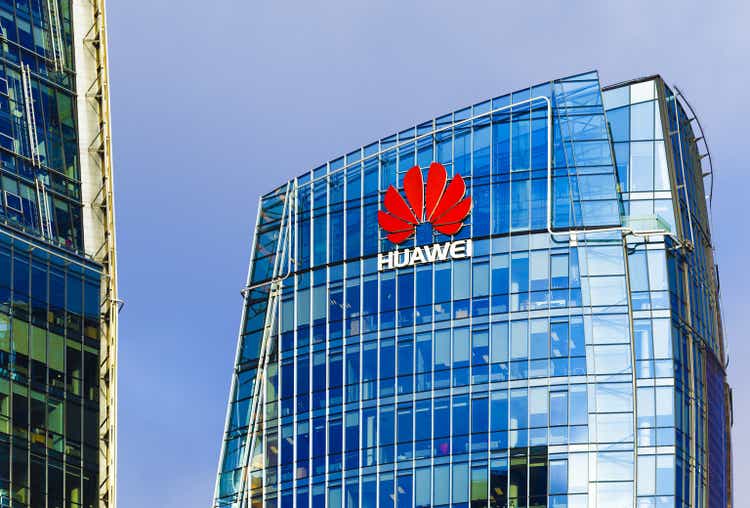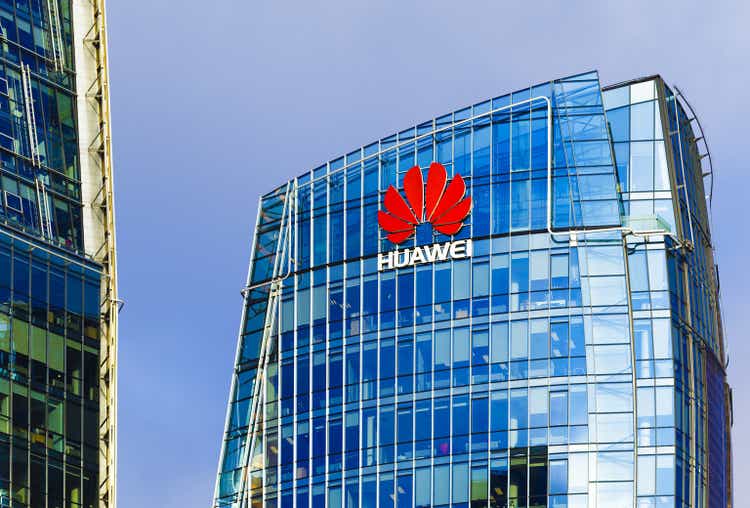
WoodyAlec
Huawei Technologies and its chip making partner Semiconductor Manufacturing International (OTCQX:SIUIF) are struggling with production of the chips used in Huawei’s next flagship phone Mate 70, The Information reported, citing people with knowledge of the matter.
The root cause of the issue is the continuing impact of a four-year-old U.S. ban on the supply of chip manufacturing tools to Huawei and SIUIF, the report added.
Huawei is planning to launch new products at an event on Sept. 10, just hours after Apple (NASDAQ:AAPL) unveils the new iPhone 16 on Sept. 9.
Huawei wanted to procure at least 2.5M chips ready before releasing Mate 70, and was planning for a September release. However, due to the current manufacturing capacity and productivity, the company will not meet that target, which is needed to meet expected consumer demand for the phone, the report noted.
The company could still announce the phone next week but manufacture only a small number of phones immediately available for buying, and then let customers pre-order and wait for delivery. Huawei employed a similar tactic last year when it unveiled Mate 60. It is also possible that Huawei could delay the release of the Mate 70 series until November or later, according to the report.
Last year in August, Huawei surprised many by quietly launching its new flagship smartphone, Mate 60 Pro. The chip inside the phone ignited concerns in the U.S. and raised questions about how it was possible, without the company being able to access critical technologies. In April, Huawei launched its Pura 70 series, which features the Kirin 9010 chip, a follow-up to the Kirin 9000s reportedly made by Semiconductor Manufacturing International (OTCQX:SIUIF) for the Mate 60 Pro.
The Chinese tech giant was once in competition with Apple (AAPL) and Samsung (OTCPK:SSNLF) to be the world’s biggest handset maker until U.S. restrictions, starting in 2019, began to curb its access to chip manufacturing tools needed to produce its most advanced models. Huawei sold its budget phone brand Honor, and had temporarily suspended the manufacturing of 5G phones.
The industry’s expectations for the upcoming Mate 70 phones have grown. The chip inside the new phone is a new generation of mobile phone processor. The chip is manufactured at the most advanced chipmaking process available in China called N+3, which Huawei and SIUIF hope is comparable to the 5nm process by Taiwan Semiconductor Manufacturing (TSM), the report added.
TSM’s 5nm process is about two years behind, being used to manufacture the chips for the iPhone 12, 13, and 14.
The N+3 chips are smaller, faster, and consume less power versus prior generation of chips. Huawei designs its chips while SMIC makes them, as per the report.
SIUIF uses outdated and inefficient tools to make advanced chips because of not being able to access essential U.S. equipment due to the ban. This has resulted in higher manufacturing costs and lower productivity. The Mate 70 chips SIUIF did manage to make had a high defect rates. As many as 60% of the chips on each wafer were considered unusable, the report noted.
Besides the Mate 70, Huawei reportedly plans to unveil the world’s first commercial-ready smartphone which folds twice and also the Aito electric vehicle, among other things.
